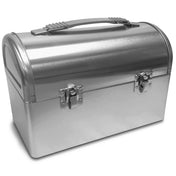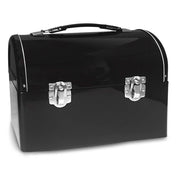In a new study on parenting teens, psychologists find that mothers and fathers who are less capable of tamping down their anger are more likely to harshly discipline their kids, and fathers in particular were not as good at considering alternative explanations for their teens’ behavior.
Parent-teenager interactions are often challenging. And as anyone who has raised a teenager knows, parental goals often don’t exactly align with those of the child. Sometimes, not even close.
“Discipline issues usually peak during toddlerhood and then again during adolescence, because both periods are really marked by exploration and figuring out who you are, and by becoming more independent,” said Dr. Melissa Sturge-Apple, a professor of psychology at the University of Rochester.
Yet the developmental changes during puberty and the transition to adolescence mean that parents necessarily need to adjust their parenting behaviors, she adds. Part of that adjustment is parents’ ability to think on their feet and navigate conflicts with flexibility as their teens strive for more autonomy and greater input in the decision-making processes.
Sturge-Apple is the lead author of a new study about mothers’ and fathers’ capacity for self-regulation as well as hostile parenting during their child’s early adolescence. The study appears in the journal Development and Psychopathology.
The research was sparked by an obvious deficit: more than 99 percent of parent regulation studies have focused exclusively on mothers. In this study, Sturge-Apple and colleagues looked at how mothers and fathers regulated their stress in response to conflict with their adolescent children.
They then examined how the stress response affected their discipline of the child. The researchers measured parents’ physiological regulation using a widely used tool to measure heart rate variability. The laboratory-based assessments were spaced roughly one year apart.
Sturge-Apple’s research team included Drs. Patrick Davies, professor of psychology at Rochester; Zhi Li, a postdoctoral fellow at the University’s Mt. Hope Family Center; Meredith Martin, now an assistant professor of educational psychology at the University of Nebraska; and Rochester psychology graduate student Hannah Jones.
The investigators discovered dads are more likely than moms to think that their teen was being intentionally difficult, or “just trying to push buttons.”
They also found that mothers and fathers who were less capable of controlling anger, as measured by heart rate variability, were more likely to resort over time to harsh, punitive discipline and hostile conflict behavior vis-à-vis their teenager.
The scientists also measured parents’ set-shifting capacity; that is, the parents’ ability to be flexible and to consider alternative factors, such as their child’s age and development.
“Set shifting is important because it allows parents to flexibly and deliberately alter their approaches to handling the changeable behaviors of their children in ways that help them to resolve their disagreements,” said Davies.
On average, fathers were not as good as mothers at set shifting and were less able to control their physiological anger response. As a result, they were more likely to think that their teen was intentionally difficult, or “just trying to push buttons,” which in turn guided their decisions about discipline.
However, the researchers found that those fathers who were better at set shifting than others were also better able to counteract difficulties in physiological regulation as expressed by factors associated with heart rate variability.
These episodes of physiological dysregulation, the team discovered, predicted over time an increase in parents’ angry responses, and that essentially, set shifting offsets this angry response tendency.
“As we learn more, these findings may have important implications for building and refining parenting programs,” Davies said.
“For example, there are exercises that help increase physiological regulation in ways that may ultimately reduce hostile parenting behaviors for mothers and fathers.”
There’s an irony in past research studies’ almost exclusive focus on mothers.
“Dads are typically the enforcer in the family and this role may be difficult to override,” said Sturge-Apple. “Thus, the ability to be flexible in responses may help dads, more than moms, adjust to the changes of adolescence.”
The research, which included 193 fathers, mothers, and their young teenagers (aged 12 to 14), was conducted at the University’s Mt. Hope Family Center.
Original article by Rick Nauert (PhD) appears on PsychCentral.
Photo courtesy of Adobe






